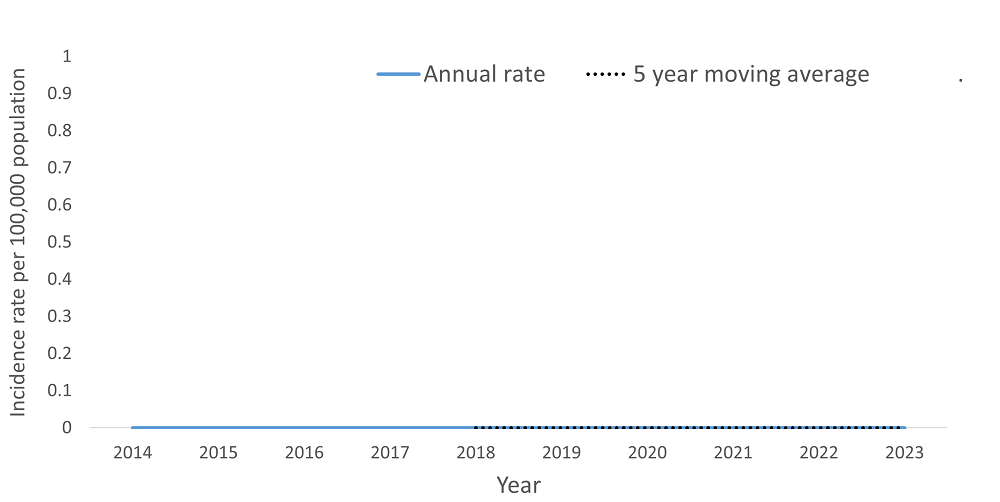Psittacosis is caused by the bacteria Chlamydophila psittaci. It is also known as parrot fever or ornithosis. It is spread to humans from infected birds. Birds from the parrot family are the most common carriers; less common carriers are poultry, pigeons, and sea birds. Though rare, people who own pet birds or work with birds (e.g., at pet shops, veterinary clinics, farms) are most at risk.
Local Information
2024 Statistics
Incidence rate is the number of new cases of disease divided by the number of persons at risk for the disease during a particular time period.
Cases:
0*
*Includes confirmed cases in 2024.
Incidence rate per 100,000 in 2024: 0
Incidence rate per 100,000 of Psittacosis/Ornithosis by year

Data Sources |
|
More Information about Psittacosis/Ornithosis |
Reporting |
|
Report to the Health Unit by next business day by phone at 705-474-1400 or toll free at 1-800-563-2808, ext. 5229 if psittacosis/ornithosis is suspected or confirmed as per Ontario Regulation 135/18 and amendments under the Health Protection and Promotion Act, R.S.O., c.H.7. |
Should one go to childcare, school, or work if they have psittacosis/ornithosis? |
|
No exclusion necessary. Infected individuals should be instructed on using proper hand hygiene and proper cough etiquette. Follow the direction of your healthcare provider, public health case manager, or occupational health at your workplace. |
Healthcare Provider Information |
|
Public Health Ontario: Psittacosis Public Health Ontario: Chlamydophila psittaci - PCR Infectious Disease Protocol, Appendix 1: Psittacosis/Ornithosis Ministry of Health: Management of Avian Chlamydiosis in Birds and Equids Guideline |
Contact our Communicable Disease Control (CDC) program at 705-474-1400 or toll free at 1-800-563-2808, ext. 5229, or by email to cdc@healthunit.ca for more information.
Last updated: February 2025, by CDC


